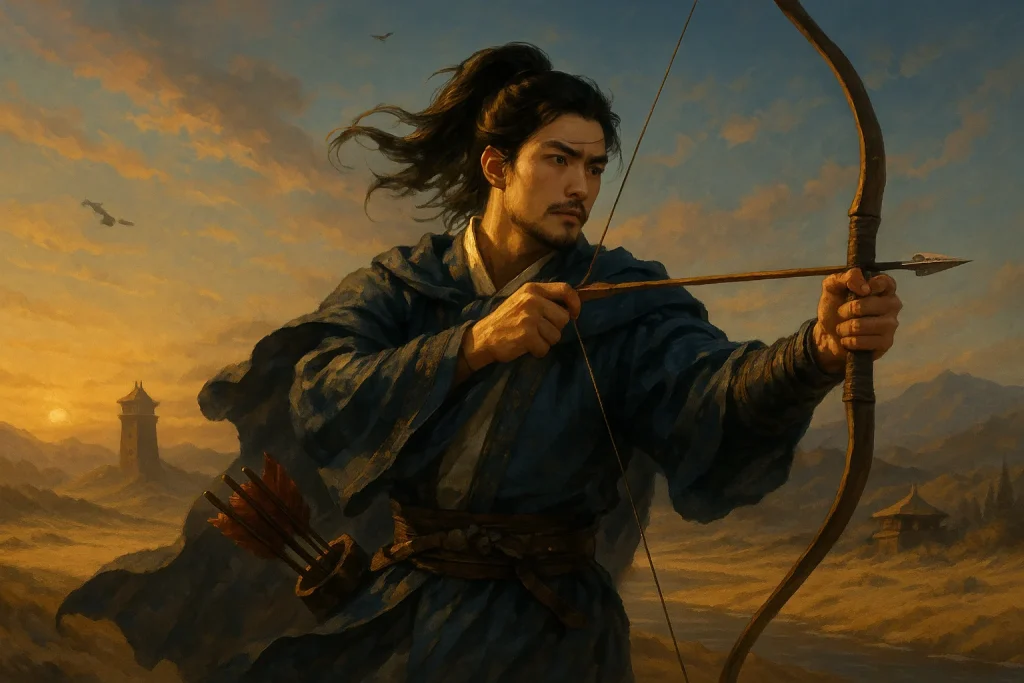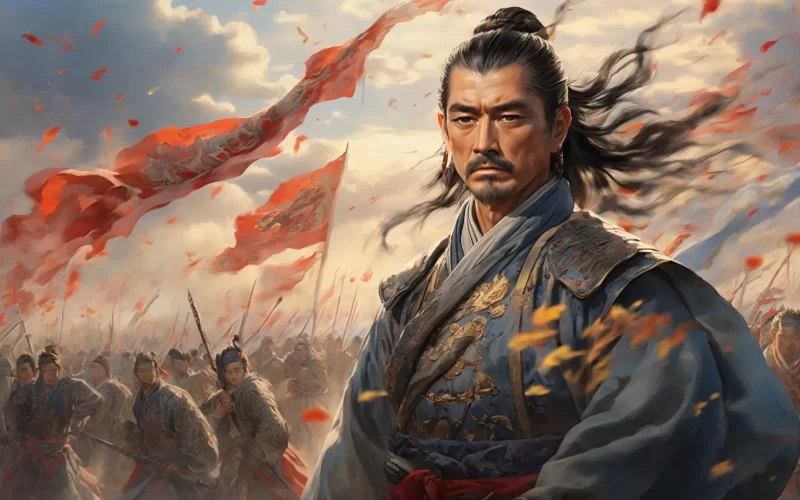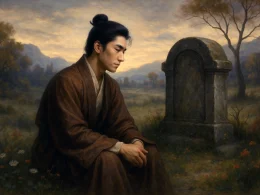His golden arrow is tipped with hawk's feathers,
His embroidered silk flag has a tail like a swallow.
One man, arising, gives a new order
To the answering shout of a thousand tents.
Original Poem
「塞下曲 · 其一」
卢纶
鹫翎金仆姑,燕尾绣蝥弧。
独立扬新令,千营共一呼。
Interpretation
Composed against the backdrop of frontier warfare, this opening poem of the series establishes the heroic tone with concise yet majestic depictions of a general issuing commands. Through the general's imposing presence, military display, and unified orders, it manifests formidable discipline and awe-inspiring might, while capturing the unique beauty of frontier life and battlefield grandeur.
First Couplet: "鹫翎金仆姑,燕尾绣蝥弧。"
Jiù líng jīn pú gū, yàn wěi xiù máo hú.
Vulture-feathered golden arrows, swallow-tailed banners embroidered with arcs.
This couplet meticulously portrays the general's majestic bearing. "Vulture-feathered arrows" signify extraordinary sharpness, while "swallow-tailed banners" depict splendid, fluttering standards. The parallel structure presents both his exquisite armaments and commanding authority that awes the entire army.
Second Couplet: "独立扬新令,千营共一呼。"
Dú lì yáng xīn lìng, qiān yíng gòng yī hū.
Alone he stands proclaiming new orders; a thousand camps respond as one.
Here the general issues commands with towering presence. "Alone he stands" highlights his peerless leadership; "new orders" conveys battlefield urgency; while "a thousand camps respond" demonstrates iron-clad discipline. The shift from static dignity to dynamic response powerfully amplifies the military's formidable spirit.
Holistic Appreciation
This quintessential quatrain condenses an epic scene of unified military action. The first couplet's parallel structure captures the general's splendid armor and prestige, while the second breaks into dynamic prose-like lines showing orders and collective response. This structural shift from stillness to motion creates tremendous tension and rhythm, etching both the general's authority and the army's might with unparalleled vividness.
Artistic Merits
- Precise parallelism: The first couplet's exact antithesis vividly renders the general's image with economical yet detailed strokes.
- Dynamic transition: The shift from static "standing alone" to thunderous "unified response" creates surging momentum.
- Strategic amplification: Focusing on one man's command to suggest massive collective action enhances both visual impact and conceptual force.
- Epic compression: Rare among five-character quatrains in depicting vast military spectacles with banners and unified movements.
Insights
This poem exemplifies how unified commands and concerted action form the core of collective strength, with leadership at its heart. It teaches us to capture essential scenes through concise language - using stillness to imply motion, minimalism to suggest magnitude. The composition reminds writers and speakers alike that true power lies in precise, impactful expression that moves audiences as decisively as the general's orders moved his troops.
Poem translator
Kiang Kanghu
About the poet

Lu Lun (卢纶), 748 - 798 A.D., was a native of Yongji, Shanxi Province, and was one of the "Ten Scholarly Men of the Dali Dynasty". Lu Lun was a judge of the Marshal's Office in Hezhong, and he served as the inspector of the Ministry of Revenue. His poems were more eloquent and liberal, with many works of farewells and rewards, as well as works reflecting the life of soldiers. Five volumes of his poems are recorded in Quan Tang Shi (All Tang Poems).












